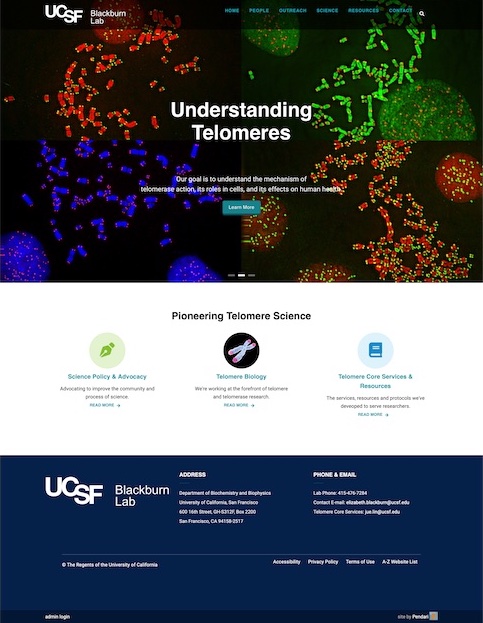
At Pendari, we were honored to have the opportunity to refresh Dr. Elizabeth Blackburn’s website, showcasing her groundbreaking research and contributions to the scientific community. Our team was committed to creating a modern and engaging platform that effectively presented her work and preserved her inspiring legacy. We were proud to have played a role in ensuring that Dr. Blackburn’s remarkable achievements continue to inspire and educate future generations of scientists and researchers.
About Dr. Elizabeth H. Blackburn
Elizabeth Blackburn, a renowned molecular biologist, was born on November 26, 1948, in Hobart, Tasmania, Australia. She gained international recognition for her groundbreaking research in telomere and telomerase biology, which culminated in her being awarded the Nobel Prize in Physiology or Medicine in 2009, alongside Carol W. Greider and Jack W. Szostak. Blackburn’s work has significantly contributed to our understanding of the molecular mechanisms of aging, cancer, and other age-related diseases.
Blackburn completed her Bachelor of Science degree in 1970 and her Master of Science degree in 1972, both at the University of Melbourne. In 1975, she earned her Ph.D. from the University of Cambridge, where she conducted research on DNA sequencing. Subsequently, she pursued postdoctoral work at Yale University from 1975 to 1977. Blackburn then joined the faculty at the University of California, Berkeley, where she worked as an assistant professor, associate professor, and full professor from 1978 to 1990.
In 1990, Blackburn moved to the University of California, San Francisco (UCSF), where she served as a professor of microbiology and immunology. Throughout her illustrious career, Blackburn has been a dedicated educator and mentor, playing a pivotal role in shaping the careers of numerous scientists.
Blackburn’s seminal discovery of the enzyme telomerase in the late 1980s, along with her work on telomeres – the protective caps at the ends of chromosomes – has had a profound impact on the field of molecular biology. Her research elucidated the critical role telomeres and telomerase play in cellular aging, providing insight into the development of cancer and other age-related diseases. This pioneering work not only earned her the Nobel Prize but also led to her inclusion in TIME magazine’s list of the 100 most influential people in the world in 2007.
Apart from her research accomplishments, Blackburn has been an active advocate for women in science, promoting gender equity in the field. Her passion for science, commitment to mentorship, and groundbreaking discoveries have left an indelible mark on the scientific community and continue to inspire future generations of researchers.
Blackburn Lab
The Blackburn Lab seeks to understand the roles of telomeres and telomerase in cell processes and human health.


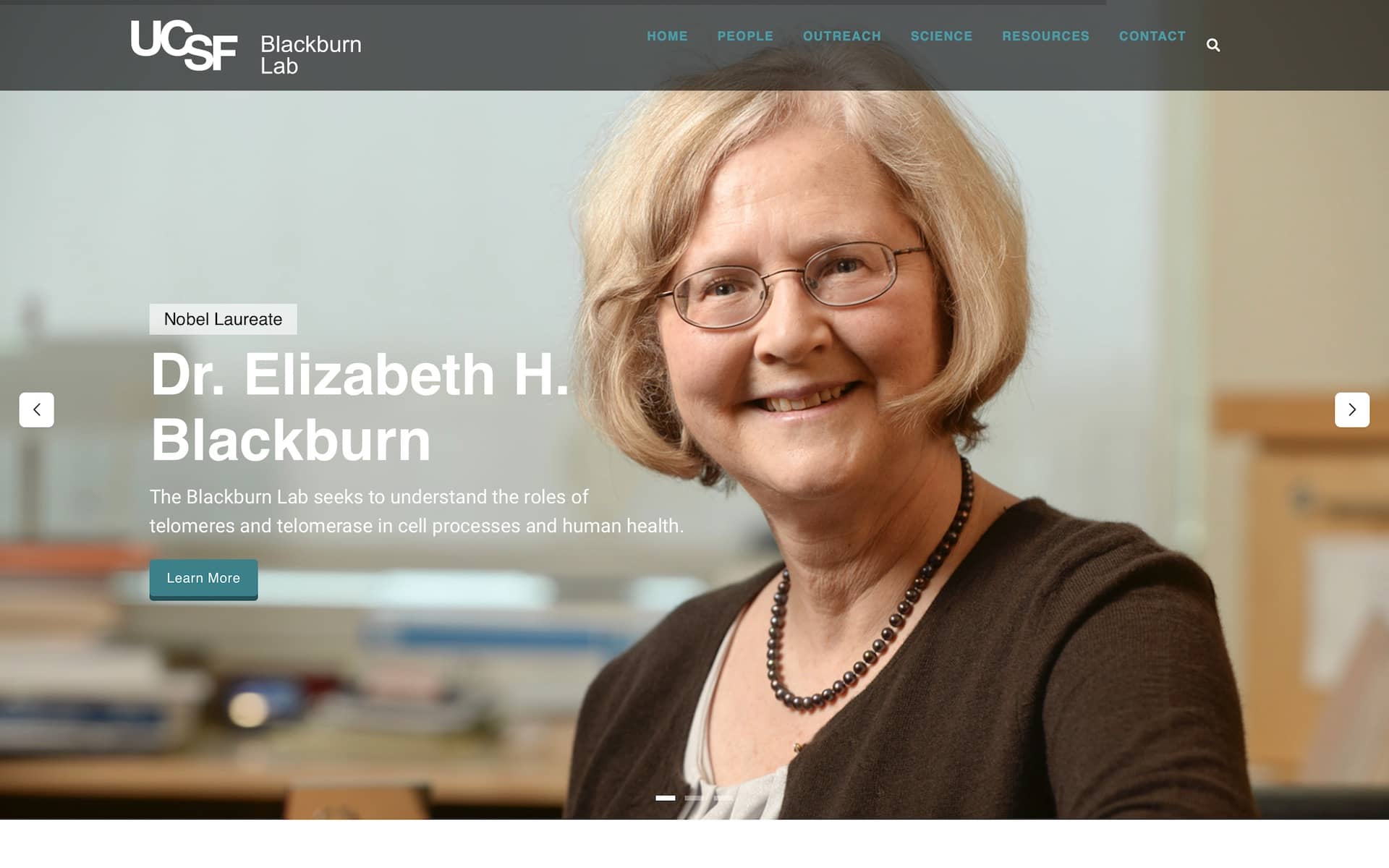
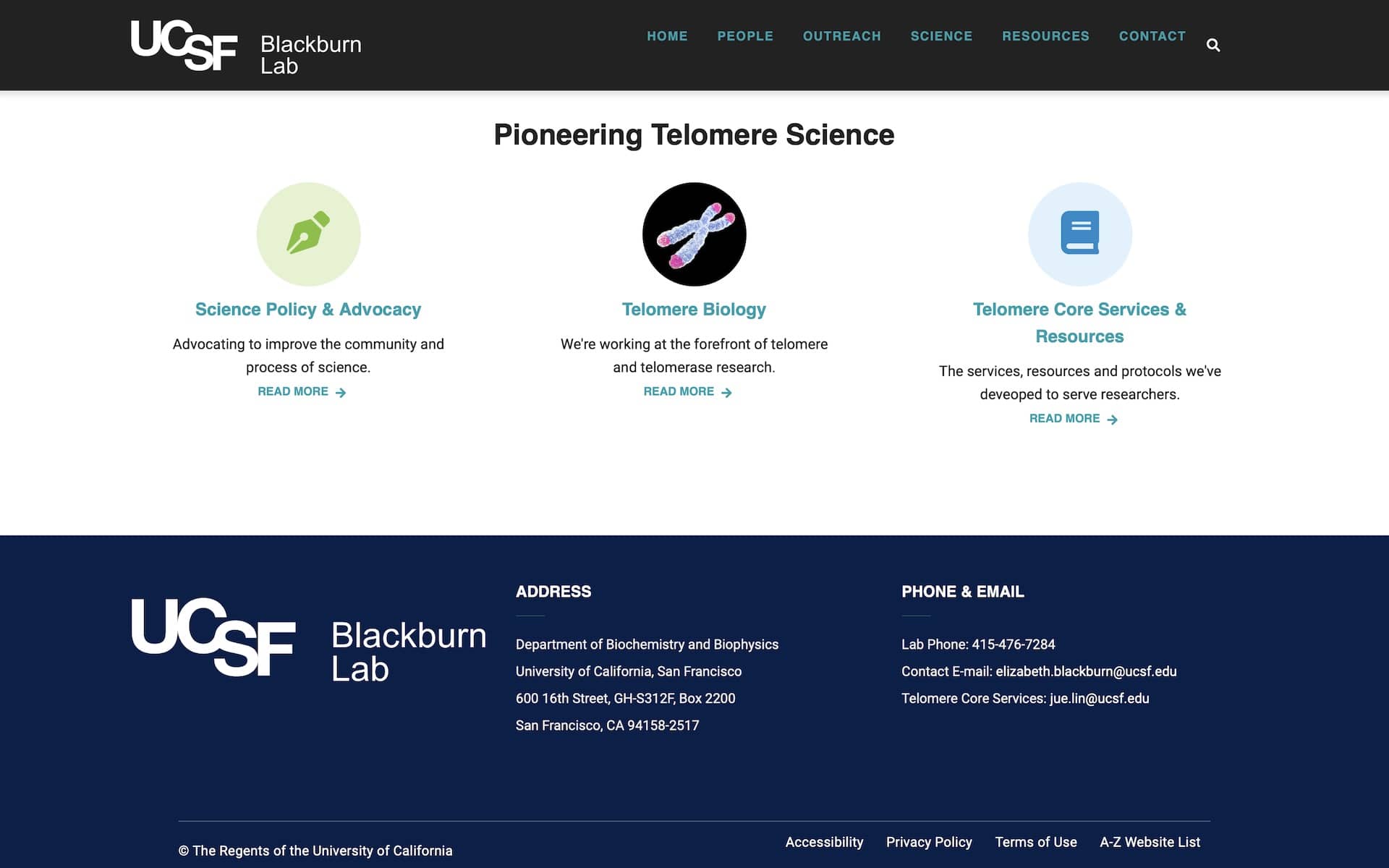
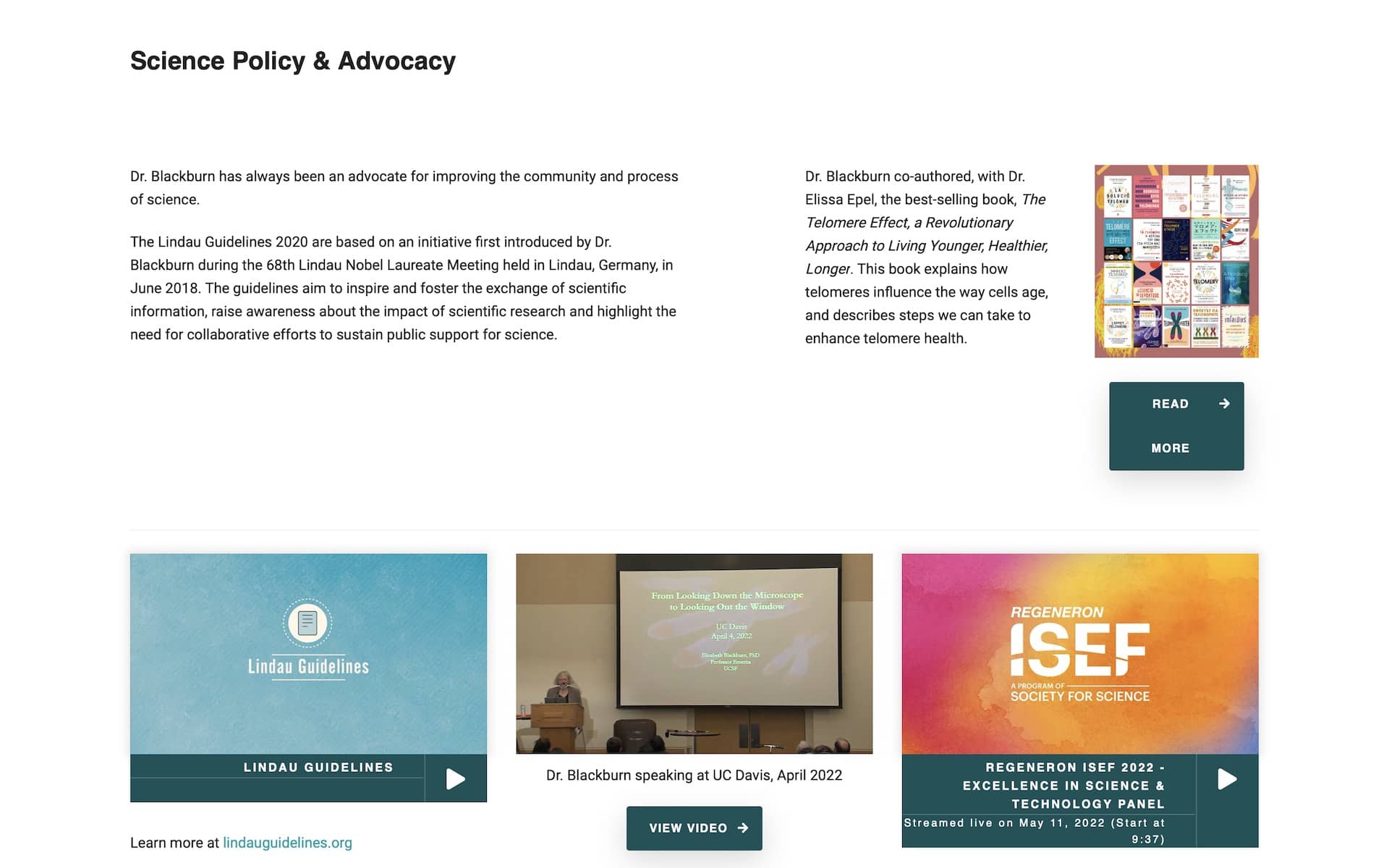
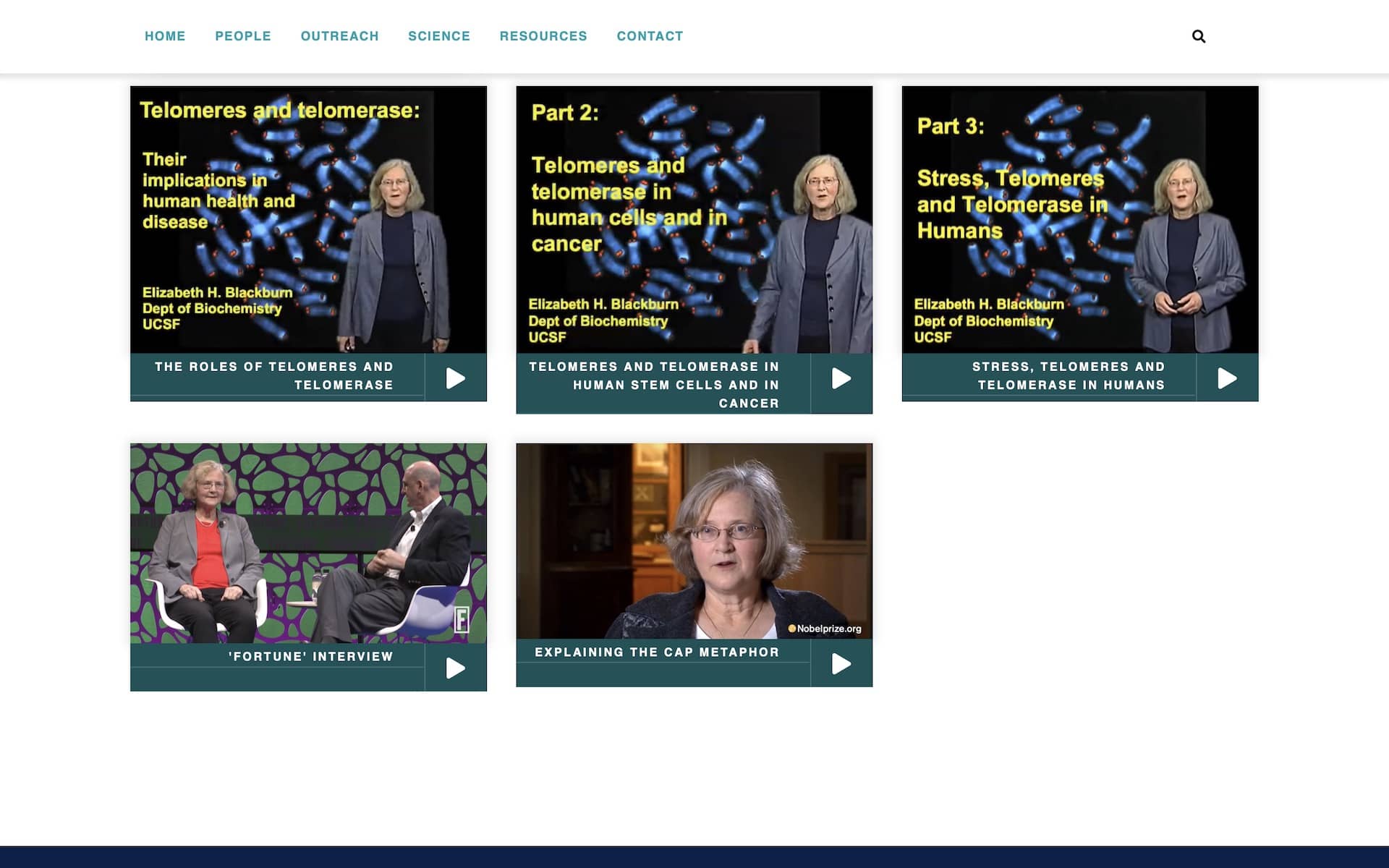

Latest Blog Posts